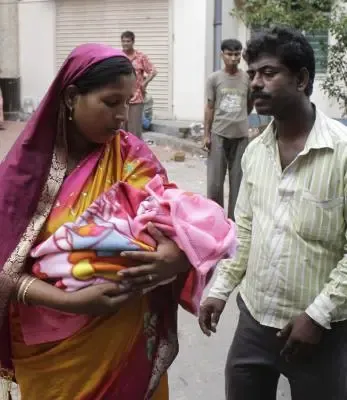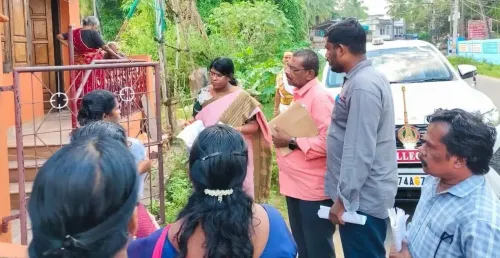Is Tamil Nadu's Infant Mortality Rate High Due to Better Reporting?

Synopsis
Key Takeaways
- Tamil Nadu recorded 10,170 infant deaths in 2021.
- The state’s IMR dropped to 8.2 per 1,000 live births in 2023.
- Urban areas account for a significant majority of infant deaths.
- Death registration efficiency contributes to statistical representation.
- Healthcare access remains a critical issue in rural versus urban settings.
Chennai, May 15 (NationPress) Tamil Nadu recorded 10,170 infant deaths in 2021, representing approximately 7.4 percent of the total 1.36 lakh infant deaths documented throughout India that year, according to the latest Civil Registration System (CRS) report from the Registrar General of India.
The state ranks among the top six in the nation for infant mortality statistics.
Despite these figures, Tamil Nadu has achieved progress in lowering infant mortality.
The health department recently reported a notable decline in the Infant Mortality Rate (IMR), which fell to 8.2 per 1,000 live births in 2023 — one of the lowest rates in the country.
Public health experts have expressed concerns regarding the interpretation of data without context.
Dr. K. Kolandaswamy, former Director of Public Health, indicated that Tamil Nadu’s position among the top six could reflect its efficient reporting system rather than unfavorable health outcomes.
“While the numbers are accurate, they must be understood in context. Tamil Nadu boasts one of the highest rates of timely death registration,” he stated.
The CRS report highlights that Tamil Nadu is one of 11 states and Union Territories with over 90 percent of deaths registered within the required 21-day period.
Dr. Kolandaswamy emphasized the necessity of considering additional sources like the Sample Registration System (SRS) and maternal death audits for a comprehensive understanding of infant health in the state.
A significant concentration of infant deaths was observed in urban areas. Out of the total 10,170 deaths, over 9,100 occurred in cities and towns.
Chennai reported the highest number at 1,731, followed by Madurai at 935 and Salem at 816.
The urban-rural divide is particularly pronounced. For example, in Thanjavur district, only six infant deaths were reported from rural areas compared to 741 in urban regions — a difference of 123-fold.
Vellore, Coimbatore, and Salem exhibited similar trends.
In districts such as Ramanathapuram, Sivaganga, and Tirupattur, rural areas reported zero infant deaths, while urban areas recorded 50, 4, and 25, respectively.
Dr. Kolandaswamy explained this pattern, attributing it to healthcare infrastructure and treatment-seeking behaviour.
“Most deliveries and neonatal care occur in urban centers, where NICUs are located. Even rural patients often travel to cities for treatment,” he noted.
Stillbirth statistics mirrored this trend. Of the 7,288 stillbirths documented in 2021, over 6,400 occurred in urban areas.
While the CRS data highlights Tamil Nadu’s strength in death registration, it also underscores the ongoing need to address newborn health in both urban and rural settings across the state's nearly 10-crore population.










